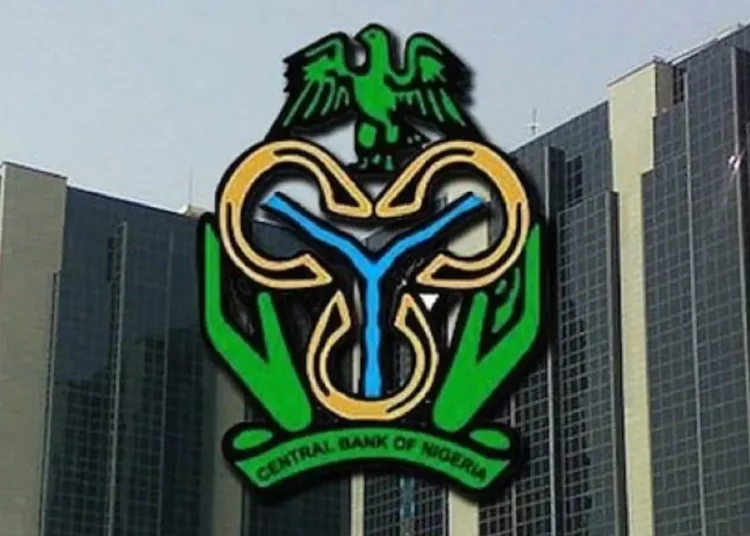The Central Bank of Nigeria (CBN) has been at the forefront of bold economic reforms recently, especially in 2024, signaling a renewed commitment to stabilising the nation’s economy under the leadership of Governor Olayemi Cardoso.
Confronted with persistent inflationary pressures and a need to restore investor confidence, the CBN has obviously employed a series of strategic monetary policies aimed at addressing economic vulnerabilities, enhancing transparency, and building a resilient financial system.
In 2024, the CBN introduced several pivotal reforms to recalibrate the economy, leveraging monetary tools to address inflation and promote economic growth.
Central to these efforts is the adoption of a unified exchange rate system, a landmark policy that simplifies the foreign exchange market and fosters transparency.
That move has been widely praised for eliminating inefficiencies associated with multiple exchange rates and strengthening investor confidence in Nigeria’s economic policies.
Additionally, the CBN has maintained a tight monetary policy stance to combat inflation, which has remained a significant concern for the Nigerian economy.
Through frequent adjustments to the monetary policy rate (MPR), the CBN has sought to curb excess liquidity, reduce speculative activities in the foreign exchange market, and ensure price stability. By maintaining this disciplined approach, the apex bank has reinforced its resolve to address the root causes of inflation and stabilise the naira.
Strategic Interventions
Nigeria’s inflationary trends, driven by structural inefficiencies, exchange rate volatility, and external shocks, have necessitated decisive action from the CBN. Under Governor Cardoso, the bank has deployed a mix of conventional and unconventional monetary tools to tame inflationary pressures.
One of the key strategies has been to control money supply growth by increasing the cash reserve ratio (CRR) for banks, thereby limiting the amount of money circulating in the economy. This policy complements the CBN’s efforts to manage liquidity and prevent overheating in the financial system.
In addition, the bank has emphasised the importance of promoting domestic production to address supply-side constraints that exacerbate inflation. Through targeted intervention programmes, the CBN has supported agricultural productivity, reduced dependence on imports and mitigated the impact of exchange rate fluctuations on domestic prices.
The CBN’s efforts have been supported with the removal of fuel subsidies, a fiscal reform that has freed up resources for strategic investments while curbing inflationary pressures associated with subsidy mismanagement. This bold move aligns with the CBN’s broader objective of fostering macroeconomic stability and sustainable growth.
Building transparency and restoring confidence
Governor Cardoso has made transparency a cornerstone of his administration, recognizing its critical role in fostering investor confidence and economic stability. The transition to a unified exchange rate regime is emblematic of this commitment, as it eliminates the opacity associated with multiple exchange rates and creates a more predictable environment for investors and businesses.
Furthermore, the CBN has intensified its efforts to provide timely and accurate economic data, enabling stakeholders to make informed decisions. Regular communication of monetary policy decisions through press releases, reports, and stakeholder engagements has enhanced the bank’s credibility and reinforced its accountability to the Nigerian public.
The recapitalisation of banks, another flagship initiative, underscores the CBN’s focus on strengthening the financial sector.
By requiring banks to meet higher capital thresholds, the apex bank has enhanced the resilience of financial institutions, ensuring they are better equipped to withstand economic shocks and support credit growth. This reform also aligns with Nigeria’s aspirations under the Abuja Treaty and the African Union’s Agenda 2063 to build a resilient and inclusive financial architecture.
Enhancing external reserves and boosting investor confidence
Nigeria’s external reserve position has been bolstered through strategic policies aimed at enhancing foreign exchange inflows. One notable initiative is the targeted enhancement of diaspora remittances, which have become a vital source of foreign exchange earnings. The CBN has introduced incentives to encourage Nigerians in the diaspora to remit funds through official channels, thereby improving transparency and boosting reserve levels.
For instance, the central bank recently announced a non-resident account programme for Nigerians in the diaspora. The programme is designed to aid diaspora remittances that is currently over $600 million. The programme will kick off in December this year. “It will make their opening accounts and doing their business in Nigeria relatively seamless,” Cardoso said in a response to questions from reporters.
According to official documents, diaspora remittances processed by international money transfer operators (IMTOs) totalled $4.22 billion between January and October 2024. That has significantly contributed to the growth of the foreign reserves currently at $41.9 billion.
Additionally, the unified exchange rate framework has attracted foreign investors, who now have greater confidence in Nigeria’s foreign exchange market. This policy has reduced arbitrage opportunities and speculative activities, paving the way for a more stable and predictable exchange rate environment.
Focus on Core Mandates: Price Stability and Inflation Control
At the heart of the CBN’s monetary policy activities is its unwavering commitment to its core mandate of price stability. Governor Cardoso’s administration has prioritized inflation control as a critical pillar for fostering economic growth and improving living standards.
To achieve this, the CBN has implemented a combination of demand-side and supply-side measures. On the demand side, monetary tightening through higher interest rates has helped to moderate inflationary pressures by curbing excessive spending. On the supply side, the bank’s interventions in critical sectors such as agriculture and manufacturing have addressed structural bottlenecks, ensuring that supply keeps pace with demand.
Moreover, the CBN has collaborated with fiscal authorities to align monetary and fiscal policies, creating a coherent framework for addressing inflation. This coordination has been instrumental in managing inflation expectations and ensuring that policy measures are mutually reinforcing.
Positioning Nigeria in the regional financial landscape
The CBN’s reforms align with broader regional efforts to build a resilient African financial system. By addressing structural challenges and fostering macroeconomic stability, Nigeria is positioning itself as a leader in the regional financial architecture.
The removal of fuel subsidies, for example, aligns with the African Union’s Agenda 2063, which emphasises sustainable development and economic integration. Similarly, the recapitalisation of banks and the unification of the exchange rate system reflect Nigeria’s commitment to regional aspirations under the Abuja Treaty, which seeks to harmonize financial systems across the continent.
These initiatives not only enhance Nigeria’s economic prospects but also contribute to the stability and resilience of the African financial system as a whole.
While the CBN’s monetary policies have yielded significant progress, industry watchers say challenges remain. High levels of public debt, weak infrastructure, and global economic uncertainties continue to pose risks to Nigeria’s economic stability.
“Addressing these challenges will require a sustained commitment to reform and collaboration between monetary and fiscal authorities,” says economic analyst John Lmozuapo.
Financial experts are increasingly confident that the CBN’s focus on transparency, resilience, and stability will provide a strong foundation for addressing these challenges. By maintaining its commitment to price stability and inflation control, the apex bank is well-positioned to foster sustainable economic growth and improve the well-being of Nigerians.
Economic expert Stephen Kanabe told this reporter that the Central Bank of Nigeria’s monetary policy activities in 2024 have demonstrated a clear commitment to restoring economic stability, fostering transparency, and building a resilient financial system. Under the leadership of Cardoso, the bank has implemented bold reforms that address inflationary pressures, enhance investor confidence, and position Nigeria as a leader in the African financial landscape.
As the CBN continues to navigate the complex challenges of the global and domestic economy, its unwavering focus on price stability and economic resilience will remain pivotal to achieving sustainable growth and prosperity for Nigeria. With these initiatives, the bank is not only stabilising the present but also laying the groundwork for a stronger and more inclusive economic future.
We’ve got the edge. Get real-time reports, breaking scoops, and exclusive angles delivered straight to your phone. Don’t settle for stale news. Join LEADERSHIP NEWS on WhatsApp for 24/7 updates →
Join Our WhatsApp Channel










